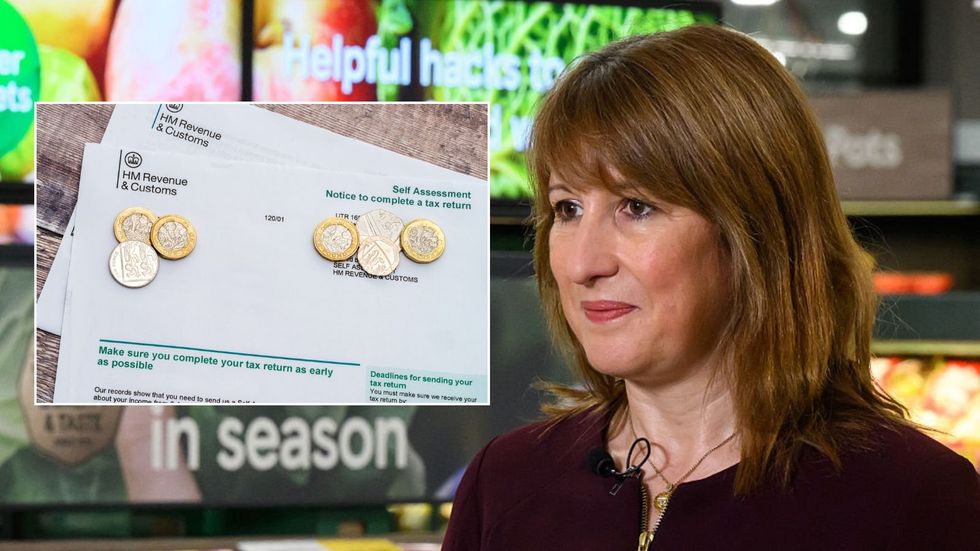Britain’s business leaders have warned the Treasury not to burden companies with multiple new taxes ahead of Wednesday’s Budget announcement.
Confederation of British Industry (CBI) chief executive Rain Newton-Smith used a Westminster conference to urge the Chancellor to avoid what she described as “death by a thousand taxes”.
She said the Government needed to reconsider its approach and avoid imposing further financial pressures on firms.
Her intervention came as Rachel Reeves prepared to outline fiscal measures intended to address shortfalls in the public finances.
Ms Newton-Smith told delegates that the current economic environment required decisive action, cautioning against incremental measures that could restrict business growth.
She issued a direct challenge to the Chancellor, calling on her to demonstrate clear commitment to economic expansion by confronting difficult policy choices.
“Prove it against opposition, against short-term politics, be it on welfare, be it pension increases, show the markets you mean business,” she said.
The CBI’s chief warned that prioritising short-term political considerations could prolong economic stagnation.
She argued that businesses could not withstand another decade of sluggish growth and urged ministers to act now rather than delay difficult decisions.

“That means making hard choices for growth now before they get harder, having the courage to take two tough decisions rather than 20 easier ones,” she said.
She suggested implementing “one or two broad tax rises, rather than death by a thousand taxes” to maintain fiscal credibility.
The scale of the Chancellor’s challenge became clearer after reports that the Office for Budget Responsibility (OBR) revised down its growth projections for 2026 and subsequent years leading to the 2029 general election.
Ms Reeves has acknowledged that forecasts would deteriorate following the OBR’s reassessment of productivity expectations.
Lower productivity predictions, combined with the expected fall in tax receipts, mean the Chancellor will need to introduce tax increases to restore fiscal balance.
The Treasury is seeking to generate additional revenue while creating a more substantial buffer against potential economic shocks.
LATEST DEVELOPMENTS
- Budget 2025: Rachel Reeves risks ‘squandering’ ISA reform amid stealth tax rumours
- Rachel Reeves braces for nationwide anger as campaigners demand fuel duty stays frozen
- Rachel Reeves plots DWP fraud crackdown in Budget as benefit cap to be axed in ‘welfare splurge’

Among the measures under consideration is a new charge on luxury properties.
Residences valued above £2million could face additional levies, with The Times reporting that more than 100,000 high-value homes may be affected.
The paper estimates that such a measure could raise between £400million and £450million for the Government.
Approximately 2.4 million homes in the highest council tax bands would be revalued to determine eligibility for the charge.
The Times reports that homeowners may be permitted to delay payment until the property is sold or passed on, removing the risk of forced sales.
The potential property tax is one of several options being weighed by the Treasury as it seeks to close budget gaps while avoiding the proliferation of smaller levies highlighted by Ms Newton-Smith.

The Chancellor is expected to extend the current freeze on income tax thresholds.
The move could result in increased tax obligations for around 1.75 million people.
According to the Institute for Fiscal Studies, two additional years of the freeze would bring 960,000 new taxpayers into the system.
A further 790,000 individuals would move into higher tax bands as earnings increase.
At the same conference, Business Secretary Peter Kyle pledged to reduce regulatory burdens for firms.
He announced plans for “a rolling programme of industry-led task forces to scrutinise regulation that’s slowing down growth”.
“These task forces will identify the red tape that needs to be culled and they will recommend smarter, sharper regulation that builds and benefits a modern, competitive business landscape,” Mr Kyle said.
Our Standards:
The GB News Editorial Charter







Follow